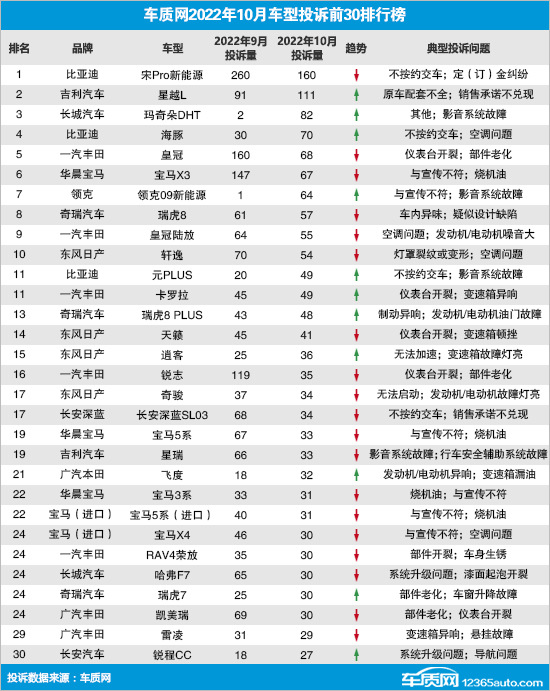In addition to Weibo, there is also WeChat
Please pay attention

WeChat public account
AutoBeta


2024-11-17 Update From: AutoBeta autobeta NAV: AutoBeta > News >
Share
AutoBeta(AutoBeta.net)05/12 Report--

According to Haidian court network, the car buyer Ms. Li gave up buying the car, and the car dealer proposed that the car had been insured, so there was no full refund. For this reason, Ms. Li sued the car sales company to the court, asking for the cancellation of the "return agreement", a refund of 7000 yuan, and compensation for other losses of more than 2000 yuan. A few days ago, the Haidian Court concluded the case and decided that the car dealer constituted a fraud and ruled to revoke the "return agreement" signed by both parties, and the car dealer refunded 7000 yuan.
On October 21, 2018, Ms. Li looked at the car at the 4S store. After the sales recommendation, Ms. Li bought the BMW 218i model, claimed that the car is a preferential activity, and suggested that Ms. Li pay a deposit first. Ms. Li then signed the "order" and paid a deposit of 10,000 yuan, but did not sign a contract for the purchase of motor vehicles. On October 30th, the car dealer asked Ms. Li to make up all the money for the car purchase of 210000 yuan. Ms. Li delivered the car dealer's fee of 200000 yuan through online money transfer, making it clear that she did not agree with the car dealer's agent to buy insurance.
On November 2, 2018, the dealer informed Ms. Li to pick up the car, and Ms. Li offered to buy another BMW X1 model with the 210000 yuan already paid. At this time, the dealer said that she had taken out insurance for a BMW 218i in the name of Ms. Li, asking Ms. Li to bear the economic losses. On November 21, Ms. Li signed the "return Agreement" for the sake of getting back some of the funds, accepting more than 190000 yuan refunded by the car dealers, and the car dealers deducted the so-called vehicle loss fee of 7000 yuan. Since then, Ms. Li went to the insurance company to go through the surrender procedures.
In the course of the court hearing, the dealer argued that the fee of 7000 yuan was the result of the negotiation between the two parties when the "return agreement" was signed, because the vehicle had been invoiced and insured, and the re-sale could only be sold as a second-hand car. at that time, it was estimated that the company's loss was about 15000 yuan to 20000 yuan, and the final compromise between the two sides was 7000 yuan. Ms. Li said that at that time, it was not clear where the losses came from, and she signed a "return agreement" in order to get the purchase money back before the expiration of the minibus purchase target as soon as possible.
The court found out that on October 21, 2018, Ms. Li signed an "order" for the purchase of a car at the car dealer. In the contents of the order, in addition to the agreement on the model, color and price of the ordered vehicle, there are also contents such as "the buyer takes out insurance in our store, and the insurance types are compulsory insurance, car damage insurance, third party liability insurance 500000, no deductible insurance" and so on. On October 31, 2018, the car dealer took out insurance on behalf of Ms. Li on the vehicle involved. On November 2, 2018, a salesperson of the car dealer informed Ms. Li via Wechat to go through the pick-up procedures, but Ms. Li did not want to buy the model, resulting in a dispute. On November 21, 2018, Ms. Li signed the "return Agreement" with the car dealer, the main content of which is that "Ms. Li is required to bear part of the loss of 7000 yuan for the re-sale of the vehicle." The next day, the car dealer transferred more than 190000 yuan to Ms. Li. The insurance company also refunded most of the premiums.
After hearing, the court held that a reservation contract relationship was established between Ms. Li and the car dealer for the purpose of purchasing a car, and because Ms. Li proposed to buy other cars, the two sides failed to sign a car purchase agreement and go through the handover procedures. Both parties agree to terminate the original car purchase reservation contract, which is in line with the provisions of the law. Although the car dealer said that the vehicle involved had been invoiced and insured, and the re-sale could only be sold as a second-hand car, the company would suffer a greater loss, but did not provide evidence for the loss.
According to Article 3.1 of the Technical Specification for Identification and Evaluation of used cars issued by the State Administration of quality Supervision, Inspection and Quarantine and the State Standardization Administration in December 2013, used cars refer to cars that carry out transactions and transfer ownership from the completion of registration formalities to the completion of national compulsory scrap standards. According to the standard, the vehicle is not delivered to the buyer, has not gone through the registration formalities with the vehicle management department, and there is no problem of "selling as a second-hand car". As for whether the vehicle has been insured or not, it has nothing to do with the value of the vehicle. Therefore, there is no factual basis for the dealer's claim that the vehicle involved has depreciated.
The two sides signed the "return agreement" on the premise that "because the vehicle does not have any problems and has gone through the relevant formalities, and has a record of insurance, such as return procedures, the company has suffered serious losses." However, the car dealer did not formally sign a car purchase contract with Ms. Li, nor did he deliver the vehicle to Ms. Li, so there was no problem of "returning the car". Before Ms. Li signed the car purchase contract, the car dealers first purchased vehicle insurance in the name of Ms. Li, which is a commercial act at their own risk. If there is any loss, they should bear it on their own. Therefore, the car dealer asked Ms. Li to bear the loss fee of 7000 yuan on the grounds that she had suffered a "serious loss", which constituted a fraud. Article 148 of the General principles of the Civil Law of the people's Republic of China stipulates: "the fraudulent party shall have the right to request the people's court or arbitration institution to revoke a civil legal act carried out by one party contrary to its true will." Under the circumstances that "it is not clear where these losses come from", Ms. Li signed the "return Agreement" in order to recover the purchase money as soon as possible, which is an untrue result and has the right to request cancellation. As a result, the court supported Ms. Li's lawsuit request to revoke the "return Agreement" and refund the car purchase fee of 7000 yuan. However, because Ms. Li "changed to buy a car", there was a certain fault in the cause of the matter, and the court did not support Ms. Li's other claims for compensation.
After the verdict, the defendant car dealer took the initiative to fulfill the refund obligation determined by the judgment.
Welcome to subscribe to the WeChat public account "Automotive Industry Focus" to get the first-hand insider information on the automotive industry and talk about things in the automotive circle. Welcome to break the news! WeChat ID autoWechat
Views: 0
*The comments in the above article only represent the author's personal views and do not represent the views and positions of this website. If you have more insights, please feel free to contribute and share.











© 2024 AutoBeta.Net Tiger Media Company. All rights reserved.